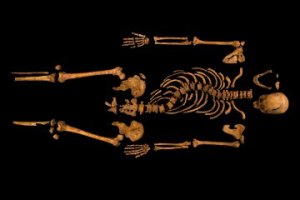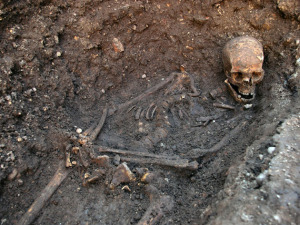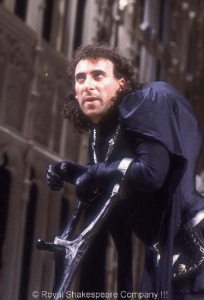In Love’s Labor’s Lost, an early comedy by William Shakespeare that, like so many of his plays, is peopled with highly literate characters (“bookmen”) and illiterate “clowns” who say of the Latin sprinkled language of their social betters: “They have been at a great feast of languages, and stol’n the scraps.” Many of Shakespeare’s plays meditate on class disparity and highlight the superior quick-wittedness of the lower orders, but this play addresses directly the purpose of the academy and the purpose of education and language learning. “We have to change or die,” wrote a colleague in his email contribution to a recent English Department strategic planning session; and what he meant was that we have to offer more online classes to accommodate the virtual realities of our students’ lives. With Shakespeare I say, “nay” or “neigh!” We must come down off our high horses and use our learning to relocate ourselves in our bodies and in the grit, boredom, pain, joy, and desires of real life.
Technology has its uses, but it should never be at the core of humanities education. In fact, it can be one more way of distancing the academy from the life of the people, of defacing our students when what we should be doing is striking back against this contemporary strand of ivory towerism to insist that education is only valuable to the extent that it returns us to ourselves, our bodies, and helps us face one another in our common humanity. Inundated with information, our students are strangers to the work of thinking with and through it all to enrich their lives. It’s our job to show them, through analyzing literature, that thinking is, itself, a pleasurable and creative activity.
Shakespeare’s character, the King of Navarre (from Love’s Labor’s Lost), wants his academe to be “the wonder of the world,” “Still and contemplative in living art;” and to that end he makes his three fellow students sign contracts that they will study for three years and, during this time, see no women. “Dr. Kietzman, I think it’s also important to note that the men also sign on to fast and to sleep but three hours in the night. Shakespeare presents this kind of study as a way of rising above our lower selves, of increasing our status. This is still how we think about education,” explained the extremely bright graduate student who is also a teacher at Saginaw Arts and Sciences High School. As Jarrod spoke, my thoughts drifted to my alma mater, Holy Cross College—a shining Jesuit “city on a hill” full of rich preppie students, mostly from East Coast cities, who almost never ventured down Mount St. James into the depressed neighborhoods of Worcester, Massachusetts. Here, at UM-Flint, few students venture very far afield, scared away from “reality” by Flint’s negative reputation in the popular press. At our designated “urban” satellite campus of the University of Michigan we don’t even pretend to peddle knock-offs of a classical education. What we’re selling at our Kearsley Street cul-de-sac is education with a practical face, but we are still encouraging our students—many of whom are the first in their families to go to college—to climb a ladder. Maybe it is not the Platonic ladder to wisdom and self-knowledge, but it is certainly the capitalist one of better-paying jobs and higher social status. But Shakespeare, as Jarrod Morningstar put it, “strikes back” and reminds us that we are all human in his drama. Drama may be the most human art form of all since the playwright’s medium is the human body, and its fundamental building block the face-to-face transaction between speaking actor and listening audience. Face-to-face is real life, real love, real conversation, communication, commiseration and celebration. No matter what century we live in or what ladder we’re trying to climb, we must realize that “learning is but an adjunct to ourselves” and that true wisdom, true civilization, true immortality, resides only within the oral community and its social and sexual processes. When we deny this reality, preferring online or virtual lives to real ones, aren’t we denying, just as surely as Navarre when he attempts to create a silent court, the truth of that we really are—more or less sophisticated—“talking animals?”
Shakespeare’s “bookmen” begin their descent into Nature and human nature when each decides that he is in love with one of the women who, due to the boys’ club’s rules, are camped out in the fields. They descend generically declining steps from reason to rhyme to performance to conversation to receiving the answer, “No,” to which Berowne, the most interesting male of the group, responds: “Our wooing doth not end like an old play: Jack hath not Jill. These ladies’ courtesy might well have made our sport a comedy.” The women flout the men’s clumsy advances and mock them out of their Muscovite masks (indulged in as some kind of weird foreplay). The women, who also wear masks to confuse their would-be boyfriends, apparently feel that the men are just show-offs who are narcissistic enough to mistake the jewelry gifts they’ve given each woman for the flesh and blood women, themselves. The women aren’t just flirting. They are trying to teach their suitors the lesson that love is a two-way, intersubjective street, a duet, and (to quote the wise Rosalind): “A jest’s prosperity lies in the ear / Of him that hears it, never in the tongue / Of him that makes it.” Before she will accept his suit, she sentences Berowne to “visit the speechless sick, and still converse / With groaning wretches … to enforce the pained impotent to smile.” In short, Berowne must learn to consider his audience and to improvise his talk, fitting it to their needs, so it may move their emotions and change or improve their lives. If we think Rosalind’s demand that her beau “get real,” consider the recent scandal concerning the Heisman trophy runner-up Mani Te’o’s “fake girlfriend.” What was most “interesting” about the story is that it seems to be the tip of an iceberg: apparently it’s not uncommon these days for people to consider themselves to be in “relationships” with people they’ve never met.
Wow! This generation really needs Shakespeare, not to fulfill a requirement or because everybody for centuries has said he’s great, but for life lessons. The relationships he depicts seem (to us) so “modern” because the conversations his lovers have are the ones we wish we were having. Shakespeare understood the art and drama of conversation so well not only because his was primarily an oral culture and drama an oral art, but because he began his career as an actor and knew, first-hand, what it took to get an audience involved. His scripts are chocked full of writerly techniques for giving the audience an active role. Love’s Labor’s Lost ends with a very amateur performance, solicited by the lovestruck men to entertain their sweethearts. Holofernes, the schoolteacher-playwright, along with a cast of inept oddballs and local illiterates present the pageant of the Nine Worthies. On a makeshift stage a few humble people (hardly heroic material) must present the historical characters Pompey the Great, Alexander, Hercules, Judas Maccabeus, and Hector. The play, despite being interrupted by the constant heckling of the aristocratic men, works because it demonstrates the profound yet simple humanity of theatre which makes art of face to face interaction in which actors and audience hold mirrors up to one another. In this instance, the noblemen in the audience not only refuse to get imaginatively involved, but they refuse to listen, preferring to ridicule a leg, a nose, body odor, the name “Jud-ass,” but most strikingly, the faces of the actors.
When I think about it, what Roger Scruton says in hi 2010 “Gifford Lectures” is correct: the human face is uniquely vulnerable to others. Our faces are the one part of ourselves that we do not see—unless we set out to see them, by using mirrors. “People are surprised by their own face, in the way that they are not surprised by any other part of their body or by the face of another person. It is through the sight of their own face that they have the sense of what they are for others, and what they are as others.” But, the main reason I think our faces are our most vulnerable body part is because, under the right conditions, they are the balconies where the subjective soul appears. It is awful to have one’s face reduced to its features; to face a listener or an audience who will not make the imaginative leap to see the “me” that emerges from them—the subject, revealing itself in the world of objects. Shakespeare’s dramaturgy shows how human actors can deceive through their faces, and can use their faces to shape the world in their own favor. In Macbeth, Duncan regrets having been taken in by the treacherous Thane of Cawdor, Macbeth’s predecessor in that title, saying “There is no art / To find the mind’s construction in the face.” But, more often than not, the deceivers are villains who in asides to the audience reveal their real feelings, giving the audience practice reading faces. What is constantly remarkable and compelling in Shakespeare’s drama is the way the actors confront and address the audience, highlighting the way human beings create and recreate one another face to face or, by refusing such encounters, deface actors onstage and scene partners in our own lives.
Students in Shakespeare seminar were able to see and discuss such issues in relation to Love’s Labor’s Lost, but every week the student who is responsible for giving the seminar presentation berates him- or herself for a poor performances. So I addressed this in an email to the students that basically said, “Hey, let’s go easy on ourselves. When we are giving class presentations or even when we speak up in a small group, we are in the same vulnerable position as those characters who staged the Nine Worthies play. Despite feeling intimidated, let’s take a lesson from Shakespeare who stresses with that play within the play that it is not only okay (but best) to be human, to expose ourselves, to express our uncertainties and limitations. That’s the beauty of drama, and it is the beauty of teaching and learning (especially in such a small group). The freer people feel to explore ideas that they are developing, the freer we feel to question and challenge, to suggest and encourage one another, the better our seminar experience will be. We come in with some ideas (sometimes more than others), but we should leave buzzing with new insights and things that we’d never thought of and questions, questions, questions. So … let’s not worry about our performances, let’s accept our humanity and just show what we’ve got.”
In conclusion, I want to say a few things about the Shakespearean character whose reconstructed face made front page news last week—King Richard III. The skeletal remains of Richard, excavated from under a carpark in Leicester, England, suggest that the “real” Richard suffered from severe scoliosis of the spine and, for Shakespeare-aholics, this means that perhaps his evil-genius sociopath character (made such by maternal and social rejection) may not have been an outright falsification. Shakespeare’s Richard is desperate to transcend his body and he does so by “fram[ing] his face to all occasions,” “wet[ting] his cheeks with artificial tears,” “chang[ing] shapes with Proteus for advantages,” and “set[ting] the murderous Machiavel to school.” In short, he presents to the audience his messed-up hunchback self, playing the actor. Amazing what will can do! Richard is mesmerizing and successful. His dramatizations of loving brother, honest soldier, besotted lover, patriotic servant actually work on those people he deceives. But his performances work not just because Richard is a good actor, but because the people he dupes trade their bodily knowledge for power. Most of them have an inkling, a nightmare, a gut feeling that Richard is not to be trusted; but they mock their dreams, swallow their curses, and try to dispel their consciences figured as “a blushing, shame-fac’d spirit that mutinies in a man’s bosom” and “beggars any man that keeps it.”
[Headline] NATURE TRIUMPHS OVER RICHARD in the end. Richard’s mother, tired of watching her entire family slaughtered by plotting brain of her twisted son, decides to use her maternal power to “smother” in the breath of bitter words her “damned son” that smothered the princes in the Tower. The women, perhaps sensing their psychological power over a man who feels that Nature, Love, and his mother conspired against him in utero, insult him throughout the play, calling him a “poisonous spider,” “a foul, bunch-backed toad,” “an elvish, marked, abortive, rooting hog.” By Act 5, it is as if Richard has internalized all of these horrible animal images and the accusing female voices, punctuated with the curse of his mother. Wanting his former “alacrity of spirit,” he is depressed on the eve of battle and he dreams that all of the ghosts of the people he’s murdered return to accuse him. Waking up in a cold sweat, he describes the chorus of internal voices as his conscience with “a thousand several tongues” that cry “Guilty, guilty!” Accused in his sleep by an audience that hisses him offstage, he is finally stripped of his false faces: “I shall despair; there is no creature loves me, / And if I did no soul will pity me.”
During the battle, Richard’s horse is killed and he famously cries, “A horse! A horse! My kingdom for a horse! The loss of his mount forces Richard to appreciate what power Nature truly has. Having a mount neutralizes Richard’s below-torso disability, but without the horse, he is brought down to earth on a gimp leg, to slouch across the field like a beast, and to wield a sword with a withered arm. He is brought home to the body he sought to escape. The excavated skeleton bears the marks of battle wounds but also blows sustained after death from vengeful soldiers of the victorious army of Henry Tudor.
Looking at the layout of Richard’s skeletal remains in the New York Times, I cannot help but feel for the man who had to build a character around that twisted structural core described in print as “the deep curvature of the upper spine … that causes the hunchback appearance, with a raised right shoulder.” “And if I die no soul shall pity me,” lamented Richard to no one but the overhearing audience. Yet I feel pity … not just for Richard. The Roman poet Ovid who, in his Metamorphoses, sets out to tell of “bodies changed to other forms,” ends his poem with a monologue from Pythagoras (mathematician, vegetarian, cult leader). Pythagoras believed in the transmigration of the soul and reports the belief that when the marrow of the human spine decays in the grave, it becomes a serpent. When I see Richard’s spine as a serpent, I don’t automatically think of evil—Shakespeare has trained me too well to be that reductive; what I do think of is the serpentine course each embodied life takes from womb to tomb and a deep respect for those forms of life (the theatre, the classroom, human conversation) that teach us to locate knowledge in life itself, in our interaction with others in the community, in face-to-face encounters that give room and improvisatory freedom for souls to come out and play. So the next time you are tempted to spend hours on “Facebook,” polishing your mask or preparing your face, remember Richard’s end. Risk taking your face out: meet some real people in real time—live and speak about your body’s experience of the world before we all, like him, come to dust.




